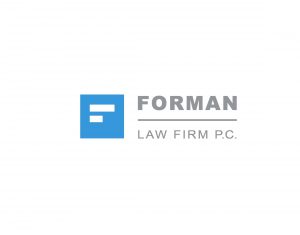Can I Sue My Stockbroker?
Well, yes and no. The question is more appropriately “How do I sue my stockbroker?” or “Where can I sue my stockbroker?” As I will explain shortly, the common denominator to all of these answers is that investors can (and should) seek recovery when their stockbroker breaches a duty owed to them and they suffer losses.
The short, but correct answer is “No,” you are likely prohibited from suing your brokerage firm in Court, and can only bring a claim in FINRA arbitration (which may look like a “Yes” answer…). All broker-dealers (think Merrill Lynch, Edward Jones, LPL, Wells Fargo, and any company that employs a stockbroker) must be registered with the Financial Industry Regulatory Authority (FINRA), the Self-Regulatory Organization that is vested with the regulation of brokers and the enforcement of rules governing the brokerage industry. All firms and their brokers are supposed to comply with FINRA’s rules and procedures, and these rules set forth many of the duties owed by the firm and the broker to the customer. When one or more of these rules are violated, a customer can be harmed and lose money (account losses) or be prohibited from making money (missed profits). One of these rules requires the broker-dealer to submit to a customer’s demand for arbitration using FINRA’s Dispute Resolution Forum–so even if there was no agreement to arbitrate, the customer could mandate that the firm submit to arbitration, but it is generally perceived that investors would prefer to be in a local court, before a local judge, and a jury of their peers.
So why can’t an aggrieved investor sue their broker in their local court? The real answer to the question in our title lies in your New Account Agreement. Virtually every brokerage firm includes language in the back of their customer agreement which mandates that any dispute brought by a customer against the firm or the broker be brought ONLY through FINRA’s arbitration forum, and our U.S. Supreme Court has validated mandatory and binding arbitration. What does this mean? It means that you can’t sue your brokerage firm or its broker in Court in order to have a trained and impartial judge and a jury of your peers apply the facts and law to your case. Instead, you get FINRA’s version of court. Of course, one may question whether this is a form (aka “forum”) of “home cooking” as the FINRA dispute resolution forum is essentially controlled by the brokerage firms through the payment of dues (note the “Self” in Self Regulatory Organization), election of officers, and influence of the SEC and the largest of our financial institutions. But to be fair there exists many opinions, primarily from FINRA and the defense bar, that the FINRA forum is more than fair to the public investor. Thus, if your broker has broken a rule and you are broker for it, forget about suing any registered stockbroker or brokerage firm in court–you will be in arbitration before FINRA.
So what does FINRA arbitration look like? It is arguably more efficient than protracted litigation in Court, as most cases are resolved with 12-14 months, but it also has its shortcomings. For example, FINRA does not routinely permit depositions (both good and bad, but results in a trial by ambush type of case), has much more limited paper discovery (both good and bad), and for most sizeable cases is decided by a panel of three arbitrators. One benefit to both the firm and the customer is that arbitrations before FINRA are confidential and cannot be searched through any online database, unless and until a full arbitration is concluded and an award is issued by the Panel, which will then be published and can then be found in FINRA Awards Database. However, the real test is found in how often FINRA arbitrators find in favor of investors, and when they do, what percentage of the claimed damages are awarded to the investor. Similarly, how well do public investors fare in negotiating a fair resolution? Despite FINRA’s statistical efforts, these are hard questions to answer, no doubt. Finally, arbitration is considered by most to be final and binding, with no easy route to appeal or contest the findings of the arbitrators, so if you win, it is likely you will receive any recovery within 30-60 days of the conclusion of the arbitration, whereas in a Court case, the likelihood of appeal is much greater.
Pragmatically, all practitioners know that FINRA arbitration is highly unpredictable. The arbitrators are not strictly bound by any state’s common law, and can fashion the award based on any remedy available under the law or through notions of equity. In other words, anything goes, and that makes FINRA arbitration hard to predict. However, one predictable outcome of this uncertainty is that many cases get resolved by the parties through negotiation and settlement, often through the use of knowledgeable mediators. By negotiating and entering into a settlement, the parties remain in control of the process and the outcome, and don’t ever have to cede complete control of the outcome to the arbitration panel.
So, can you sue your stockbroker? Yes and no. You probably can’t sue your stockbroker in Court, but you can certainly bring claims against the firm and the broker through FINRA arbitration. Whether this is good, or bad, is likely in the eye of the beholder of the opinion.
If you have an opinion on the FINRA arbitration process, please tell us who you are and weigh-in, and let us know whether you believe mandatory FINRA arbitration is fair, efficient, a forum of home-cooking, or a great alternative to putting up with the congested dockets in our court system. Should investors be given a choice—lawsuit or arbitration, or continue to be bound by the boilerplate in the customer agreements?
 Securities Fraud Lawyer Blog
Securities Fraud Lawyer Blog


